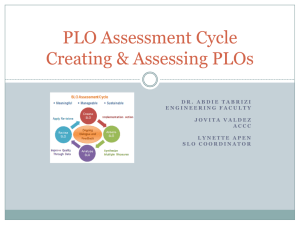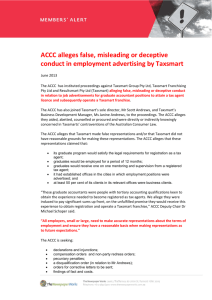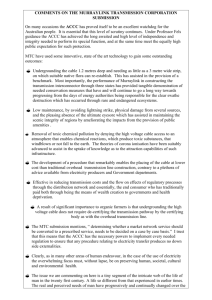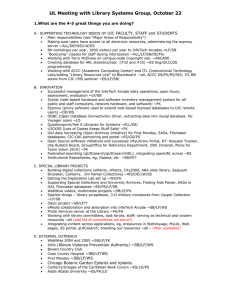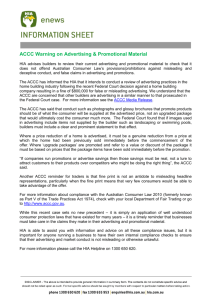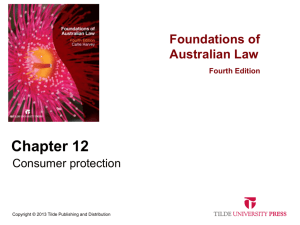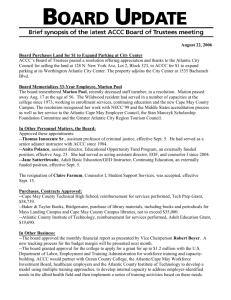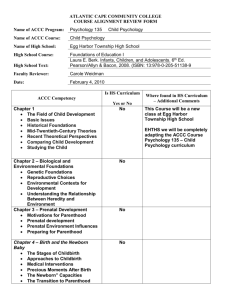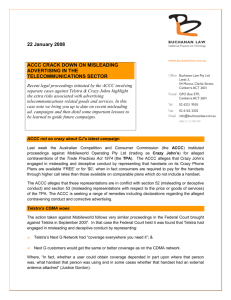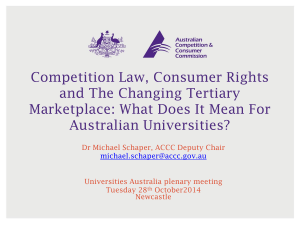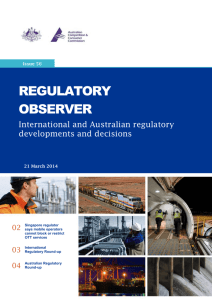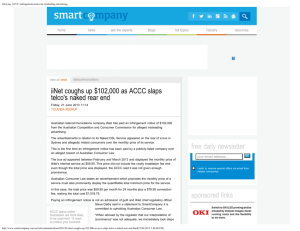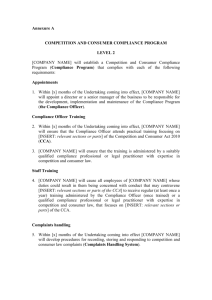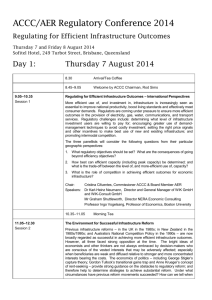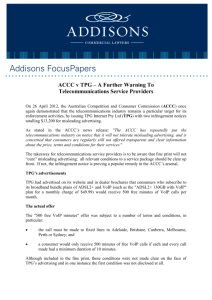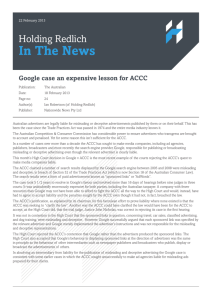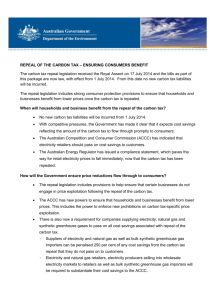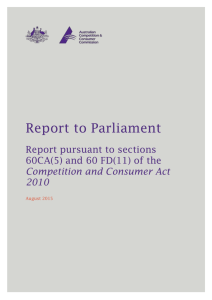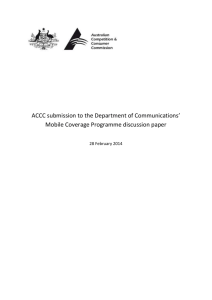22 August 2014 Professor Ian Harper c:/ Competition Policy Review
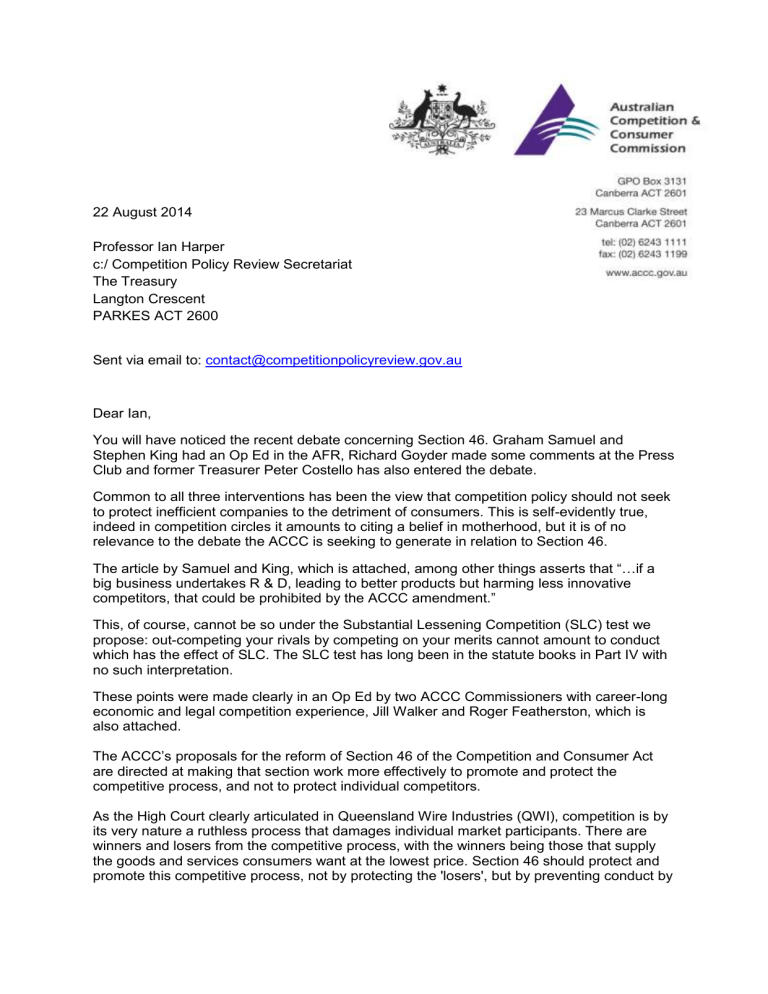
22 August 2014
Professor Ian Harper c:/ Competition Policy Review Secretariat
The Treasury
Langton Crescent
PARKES ACT 2600
Sent via email to: contact@competitionpolicyreview.gov.au
Dear Ian,
You will have noticed the recent debate concerning Section 46. Graham Samuel and
Stephen King had an Op Ed in the AFR, Richard Goyder made some comments at the Press
Club and former Treasurer Peter Costello has also entered the debate.
Common to all three interventions has been the view that competition policy should not seek to protect inefficient companies to the detriment of consumers. This is self-evidently true, indeed in competition circles it amounts to citing a belief in motherhood, but it is of no relevance to the debate the ACCC is seeking to generate in relation to Section 46.
The article by Samuel and King, which is attached, among other things asserts that “…if a big business undertakes R & D, leading to better products but harming less innovative competitors, that could be prohibited by the ACCC amendment.”
This, of course, cannot be so under the Substantial Lessening Competition (SLC) test we propose: out-competing your rivals by competing on your merits cannot amount to conduct which has the effect of SLC. The SLC test has long been in the statute books in Part IV with no such interpretation.
These points were made clearly in an Op Ed by two ACCC Commissioners with career-long economic and legal competition experience, Jill Walker and Roger Featherston, which is also attached.
The ACCC’s proposals for the reform of Section 46 of the Competition and Consumer Act are directed at making that section work more effectively to promote and protect the competitive process, and not to protect individual competitors.
As the High Court clearly articulated in Queensland Wire Industries (QWI), competition is by its very nature a ruthless process that damages individual market participants. There are winners and losers from the competitive process, with the winners being those that supply the goods and services consumers want at the lowest price. Section 46 should protect and promote this competitive process, not by protecting the 'losers', but by preventing conduct by
firms in a position of substantial market power that excludes efficient and innovative competition which would otherwise benefit consumers.
To reiterate the views detailed in the ACCC’s initial submission, the current test in Section 46 and the way it has been interpreted has two problems. First, the purpose/competition limb of the test is directed at the impact of the conduct on individual competitors, rather than the impact of the conduct on the competitive process in the market. This means that the words
“taking advantage” have had to do the heavy lifting in Section 46, distinguishing what is anticompetitive from what is pro-competitive.
This has led on to the second problem with Section 46. Rather than the words “…take advantage of that power for the purpose of...” being applied in a holistic way as a single provision, as was emphasised in the Explanatory Memorandum in 1986 (para.36) and by the
High Court in QWl, over time the application of the words "take advantage" has become disembodied from the rest of the section and from analysis of the competitive impact of the actual conduct. Rather than asking whether the conduct enables the firm with substantial market power to achieve an exclusionary purpose, thereby damaging the competitive process, courts have been distracted into deliberations about what a hypothetical firm in a counterfactual world lacking substantial market power might do (for some other purpose).
The ACCC's proposal for the reform of Section 46 is to bring it back into focus as a holistic provision which works effectively to prohibit exclusionary conduct by a firm with substantial market power. The proposal does this by adopting the same test that is utilised elsewhere in
P art IV, namely “purpose or effect of substantially lessening competition in a market”.
I am sorry to burden you with more reading but I feel we must respond to this recent debate.
Kind Regards
Rod Sims
Chairman
